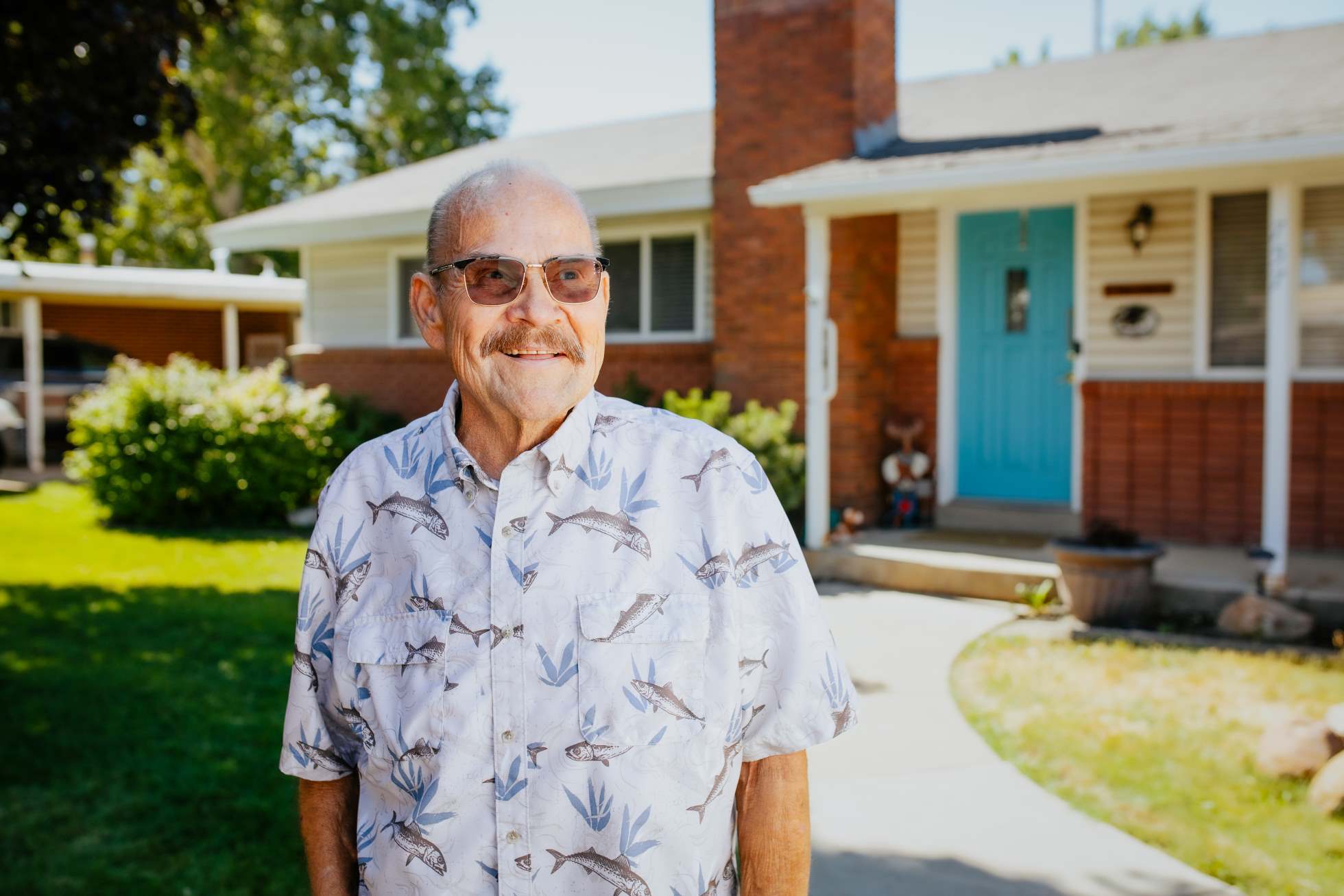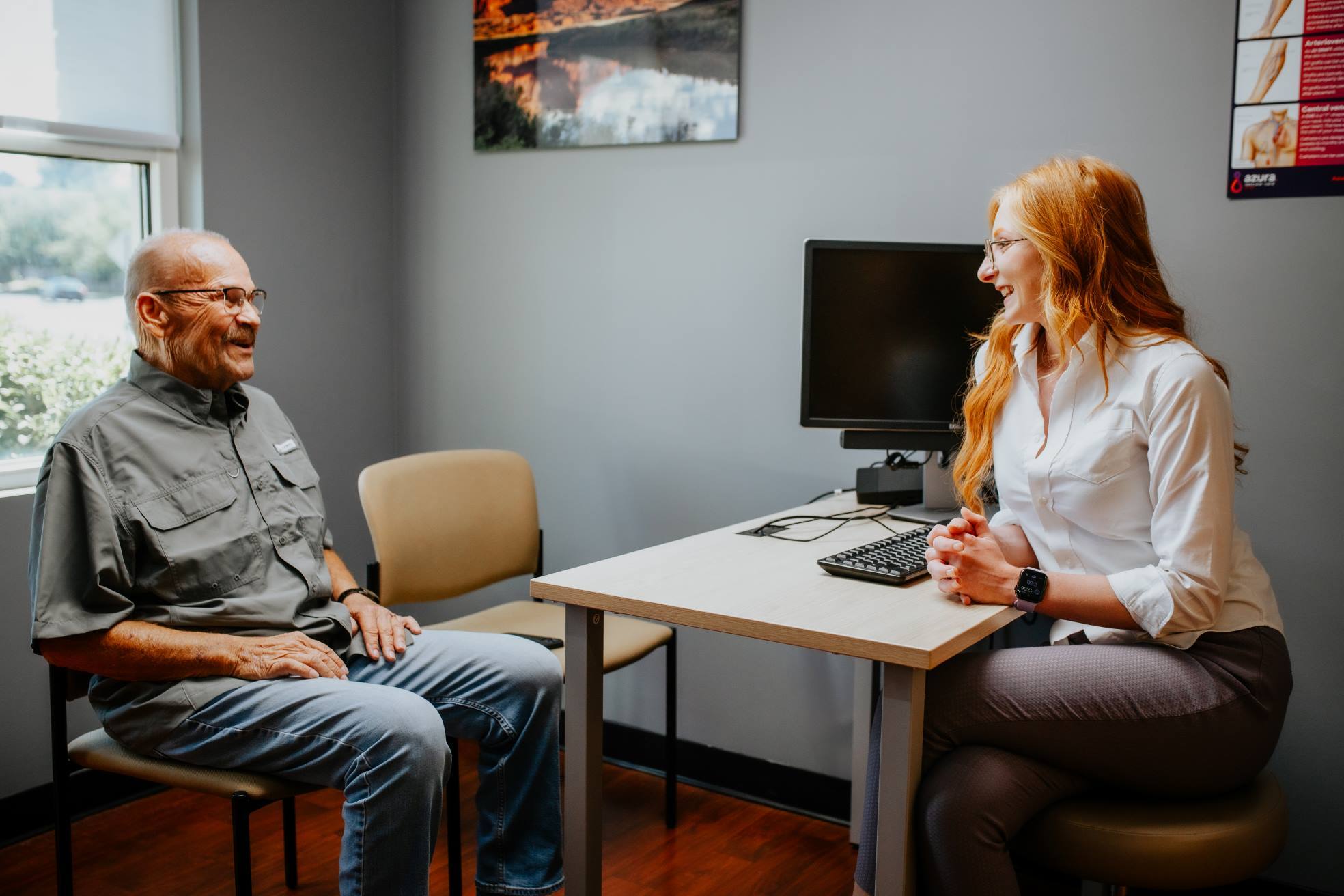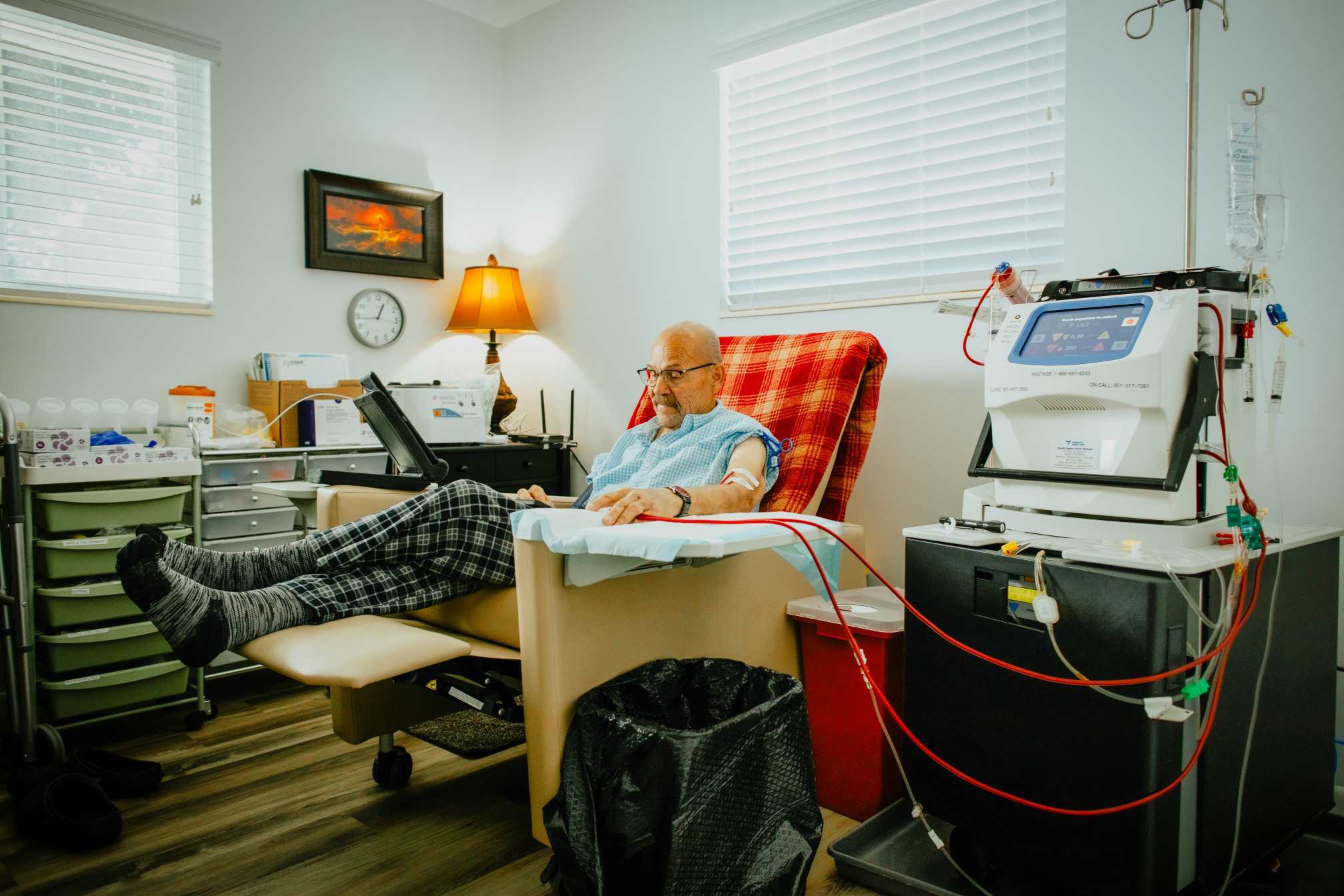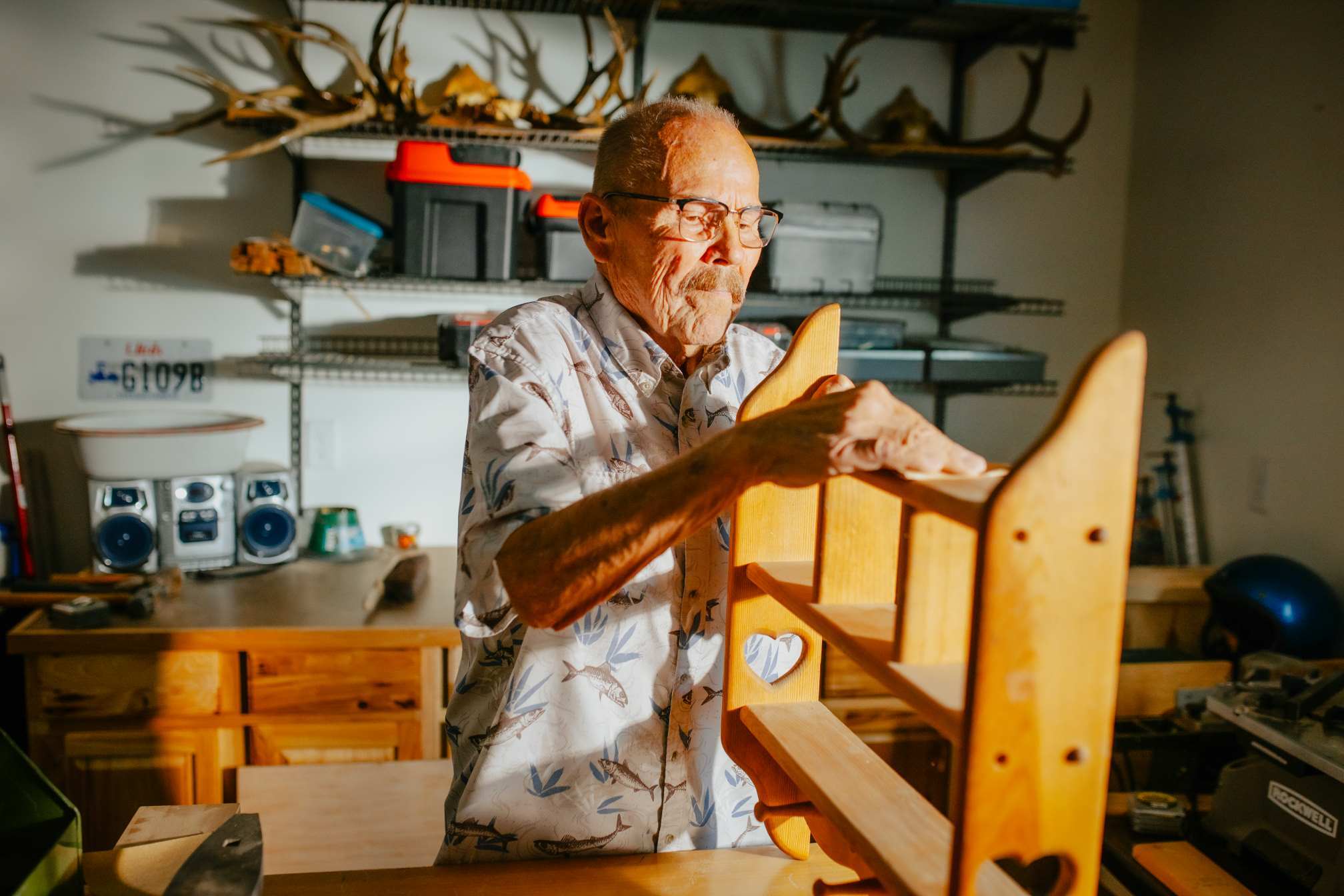Redefining Life with Home Dialysis: Rex’s Story
When Rex’s kidney transplant stopped working after 24 years, he feared starting dialysis again. Then his renal care coordinator from Interwell Health introduced him to home dialysis.
tags

“I always liked woodworking. I have everything you can imagine in my woodshop. I make little shelves and sleds and decorations for Christmas. It keeps me busy. That was the hardest thing about being on in-center dialysis,” Rex Buckway reflects. “You can’t do anything when you’re feeling sick on dialysis.”
Rex is a 70-year-old retired construction worker in Ogden, Utah and a proud father, grandfather, and great grandfather. He has always loved working with his hands and creating special gifts for his growing family. But for a period that Rex remembers vividly, his life was consumed with visits to the dialysis clinic.
Early kidney disease leads to dialysis
Rex’s health challenges began when he was in his late 20s. “It started way back. My liver started failing. Then I found out I needed a kidney,” Rex explains. “Back then, they didn’t have OSHA to make you wear a mask and protective gear. I think the lime and dust and concrete fog caused my liver failure, which caused my kidney to fail.”
Rex started in-center dialysis and spent a year and a half visiting the clinic three days a week for treatment. “It was rough doing dialysis in-clinic,” says Rex. “It consumes your life. You’re there four to five hours. I often felt sick and struggled to sleep the whole night. Then I’d have to go back and do it again.”
The rigid schedule of in-clinic dialysis also made it difficult for Rex to attend family milestones. “All year long, Monday, Wednesday, Friday, I’d miss graduations, kids’ plays, school events, weddings—all because I was on a dialysis machine.”
24 years of freedom with a transplanted kidney
On October 31, 2000, Rex received a kidney transplant. “It was a total life change. It’s a big deal, especially when you know your donor,” he reflects. Like many patients, Rex enjoyed leaving behind the limitations of dialysis once he received a kidney transplant. But after more than two decades, Rex’s donated kidney stopped working. “It lasted 24 years, which is a miracle in itself,” says Rex. While transplanted kidneys can last for 30 or more years, the average lifespan is closer to 10 years.
When a transplanted kidney fails, dialysis can be a life-sustaining temporary treatment option as patients wait for another transplant, either from the waitlist or from a living donor. But the process can take years, and not everyone is eligible for a transplant at this point in their health journey. Such was the case for Rex.
When Rex’s doctor told him he needed to start dialysis again, he was devastated.
An option Rex never knew existed: home dialysis

Rex’s perspective began to shift when Zoe, a renal care coordinator (RCC) from Interwell Health, stepped into his life. As part of a comprehensive kidney care model, Interwell embeds RCCs in practices focused on value-based care interventions to support patient education and personalized care delivery. When Zoe met Rex, she presented him with an option he never knew existed—home dialysis. “It blew my mind,” says Rex.
Zoe became a pivotal figure helping guide Rex and his treatment plan. “She spent hours talking to me about it. She explained how home dialysis is totally different from in-center dialysis. She answered every question I had,” he says.
“We had multiple lengthy discussions on peritoneal dialysis and home hemodialysis. Eventually, he decided he would do home hemo,” recalls Zoe.
Zoe’s encouragement and patience were key to helping Rex take the next step in his kidney health journey. “Zoe’s like my second daughter, almost,” says Rex. “She’s just so kind and caring.”
From hours in the clinic to more time at home with family

Once Zoe encouraged Rex to try home dialysis, he went to the clinic to get trained. “When he started, I jumped up and down because I was so excited he had done what we had been working so hard for,” says Zoe.
Instead of sitting in a dialysis clinic, Rex now dialyzes from home four days a week, often with his children around him to keep him company. With home dialysis, Rex not only regained his health but also reclaimed his independence. “The difference is like night and day,” he says. “I do everything I want to do. I’m not in pain at all.”
Related reading: How Interwell Boosts Home Dialysis
“You can even switch days around if something comes up, like a play or graduation,” adds Rex. “There’s a lot going on when you have 18 grandkids. They’re in bands and concerts and all kinds of football games. I wouldn’t be able to do any of it if I wasn’t on home dialysis.”
The shift to home dialysis also allows Rex to re-engage with activities that bring him joy. "I go out and mow the lawn, plant my garden, spend time in my woodshop," he shares. “I built shelves for my wife, and once my kids saw them, I ended up making five more—it’s something that comes from their dad that they can cherish their whole lives. I also made one for the lady who gave me her kidney.”

For Rex, home dialysis has been nothing short of life changing
“Before, I couldn’t get out of the chair because I’d get too dizzy. I stopped planting my garden. I couldn’t mow my lawn,” says Rex. "Home dialysis is pretty much a normal life. I’m out there every day in the garden and I love it.”
Rex credits much of his success to the support he received. “It was Zoe from Interwell Health who sat in on my doctor’s appointments. She is the reason I’m doing home dialysis, and it changed my life.”
“Rex and I still talk frequently,” adds Zoe. “He tells me all the time how grateful he is.”
To learn more about how Interwell’s value-based care model can help your members, visit our patient engagement page.